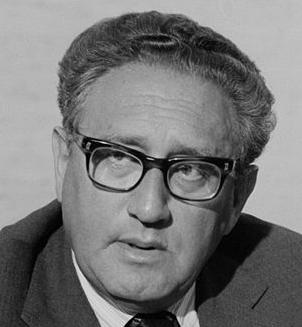Tagged: bergoglio
As long as we’re talking about Pope Francis’ role in the Dirty War, what about the U.S.’s involvement?

As expected, several media organizations are talking about the new pope’s complicity and alleged involvement with Argentina’s right-wing military dictatorship during its Dirty War, which saw approximately 30,000 people murdered, tortured, or disappeared.
But let’s not forget that the 1970’s and 80’s were the U.S. government’s heyday for getting involved in bloody Latin American conflicts, and Argentina’s Dirty War was, unfortunately, no exception.
Soon after the military took control of the Argentinian government after a bloody coup, the U.S. gave them a lot of money to get control of the country, knowing that there would be human rights violations. According to a report by the Woodrow Wilson Center:
In 1976, the Ford administration welcomed the military junta with a $50 million security assistance package, $16 million more than the previous year, and planned to increase aid to $63.5 million the following year. U.S. officials’ attitudes conveyed understanding of the Argentine need to carry out a strong counterinsurgency offensive. In the early months of the junta, the view held by the U.S. Embassy in Buenos Aires was that human rights violations were a few excesses of loose right wing elements in government units and the junta was not responsible.
Meanwhile, according to documents from that time that weren’t declassified until 2003, then Secretary of State Henry Kissinger privately gave his approval to the Argentinian government to carry-out human rights abuses, as long as they do it quickly.
“Look, our basic attitude is that we would like you to succeed. I have an old-fashioned view that friends ought to be supported. What is not understood in the United States is that you have a civil war. We read about human rights problems but not the context. The quicker you succeed the better… The human rights problem is a
growing one. Your Ambassador can apprise you. We want a stable situation. We won’t cause you unnecessary difficulties. If you can finish before Congress gets back, the better. Whatever freedoms you could restore would help.“
That was from Oct. 7, 1976. At that time, it is estimated that around 1,000 people had already been killed, including six American citizens. A low estimate of 21,000 more people would be killed (as noted above, it could be more like 30,000).
And although Argentina was publicly condemned for the human rights abuses, the U.S. government continued to support them privately and financially; in late 1976, shortly before Carter took office, the Ford administration requested $30 million in “military assistance” to a military that was constantly killing, kidnapping, and disappearing its own people, according to the Wilson Center report.
When Carter took office, there was more pressure put on the Argentinian government to stop the human rights abuses, but it was mostly in the form of talk, despite the situation worsening. Sanctions and aid weren’t in danger of being cut-off until December, 1977, when military forces assassinated activists affiliated with Mothers of the Plaza de Mayo, a group of mothers of disappeared people.
But that danger was temporary, and the Carter-Mondale administration, held up today as a symbol of naive liberalism, ended up approving loans and cash for military training and equipment.
What I would like to know is why there was such a focus on military aid when it was a military dictatorship that was committing a wide range of human rights abuses. I understand that “stability” is an important concept in geopolitical conversations and I realize that there was a militant leftist element in Argentina (although far, far weaker than the right-wing junta), but why the urgency to train and equip a military you can’t trust to not engage in rampant human rights abuses?
Anyways, it’s good that people are talking about Bergoglio’s role in Argentina’s Dirty War. But it should also be a time to talk about the U.S.’s role, which was likely far more influential than that of a Catholic priest. After all, the Catholic Church might hide pedophiles, but they don’t train and equip militaries.

